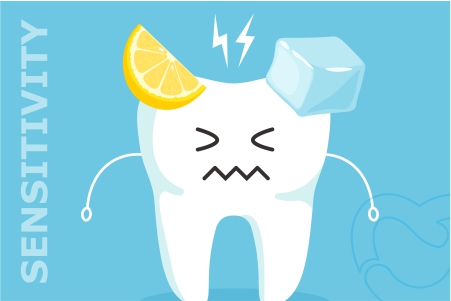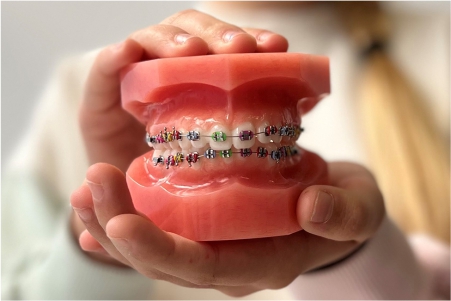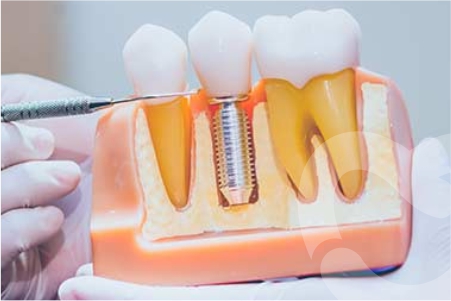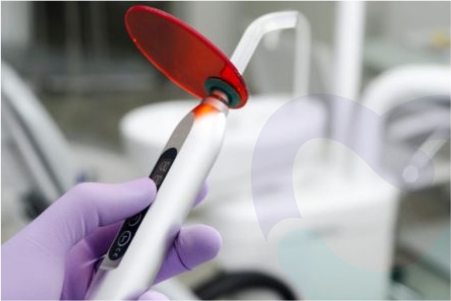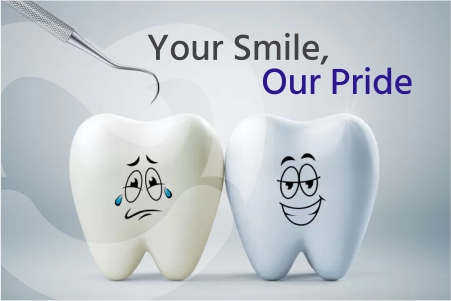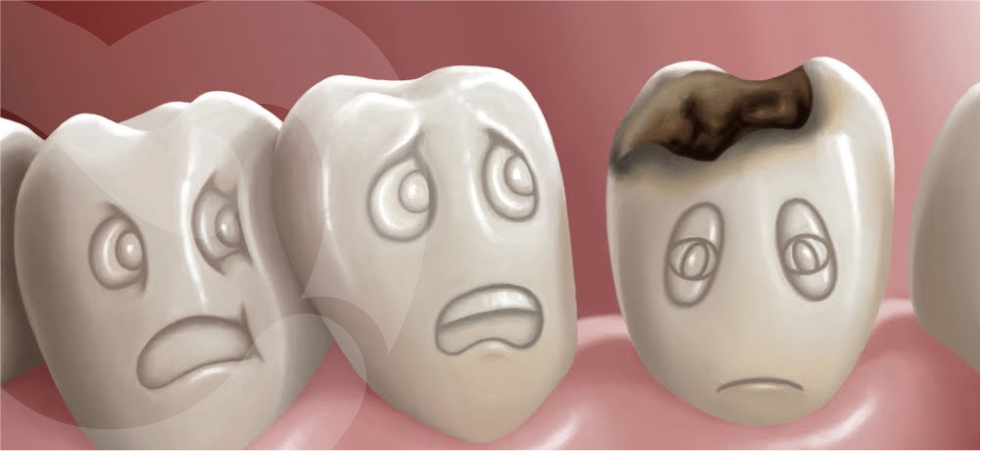
Tooth pain can be frustrating, making daily activities difficult. A sharp, persistent ache is often a sign of a problem, usually a cavity. Cavities can make chewing food painful and rob you of the joy of eating. The discomfort might even make you hesitant to smile in public, affecting your confidence.
Cavities, caused by tooth decay, are a common issue that can disrupt your life if not treated promptly. This blog serves as your "Cavity Care Guide," offering essential information on symptoms, causes, and treatments for cavities. Learn how to protect your teeth and maintain a healthy smile.
What’s a Tooth Cavity?
A tooth cavity is a hole that forms in a tooth because of the erosion of tooth enamel. This erosion occurs when acids produced by bacteria feed on food particles left on your teeth, attack the enamel. If not treated, cavities can lead to severe toothache, increased tooth sensitivity, and further dental issues.
Symptoms of Cavity
Recognizing the symptoms of a cavity early is crucial for effective treatment. Watch for these signs:
- Persistent toothache: An acute pain that can interfere with daily activities.
- Increased tooth sensitivity: Discomfort when consuming hot or cold foods and beverages.
- Visible damage: Dark spots or holes on your teeth that were not present before.
- Discomfort while chewing: Pain or difficulty when biting or chewing food.
- Changes in tooth appearance: Noticeable color change or damage to your teeth.
Cavities can start small and worsen over time. Early detection by a dental professional is essential for preventing severe damage.
What Causes Tooth Cavity?
Several factors contribute to the formation of tooth cavities:
- Poor dental hygiene: Improper brushing and flossing can lead to plaque buildup. This erodes tooth enamel and results in tooth decay.
- Sugary and acidic foods: These foods can erode tooth enamel as they feed bacteria that produce harmful acids.
- Lack of fluoride: Fluoride helps protect and strengthen tooth enamel. Without sufficient fluoride, your teeth are more vulnerable to decay.
- Irregular dental visits: Missing regular check-ups allows cavities to develop and worsen without detection.
Risk Factors
Certain habits and conditions increase the risk of developing cavities:
- Inconsistent Oral Care: Not brushing and flossing regularly allows plaque to accumulate and erode tooth enamel.
- Frequent consumption of sugary snacks: High sugar intake accelerates tooth decay and enamel erosion.
- Genetic Factors: Some individuals are genetically more prone to cavities.
- Dry Mouth: Reduced saliva flow decreases natural protection against decay, raising cavity risk.
- Dental Appliances: Braces and other devices can trap food particles and plaque, increasing the likelihood of cavities.
Complications of Tooth Cavity
Ignoring cavities can lead to serious complications:
- Severe toothache: Persistent pain that affects daily activities.
- Infections: Untreated decay can lead to infections that might spread beyond the tooth.
- Extensive damage: Significant erosion of tooth enamel may require major dental treatments.
- Root canal: If decay reaches the tooth’s nerve, a root canal may be necessary to save the tooth.
- Tooth loss: In extreme cases, the affected tooth may need extraction.
Treatment Options for Tooth Cavities
Prompt and effective treatment is crucial for managing cavities:
- Tooth fillings: A dentist removes the decayed material and fills the cavity with a durable substance.
- Fluoride treatments: Applying fluoride for cavities strengthens weakened enamel and helps prevent further decay.
- Temporary tooth fillings: These provide short-term relief until the patient goes for a permanent solution.
- Root canal: For severe cases where decay has reached the tooth’s nerve, dental professional performs a root canal.
Prevention of Cavities
Preventing cavities involves maintaining excellent dental hygiene and making healthy choices:
- Brush twice daily with fluoride toothpaste to remove plaque and protect tooth enamel.
- Floss daily to clean between teeth and prevent plaque buildup.
- Limit sugary and acidic foods to reduce the risk of enamel erosion and tooth decay.
- Regular visits to your dentist for professional cleanings and early issue detection are essential.
- Use fluoride treatments as recommended to help protect your teeth from decay.
By following these tips and seeing your dentist regularly, you can prevent and manage cavities, keeping your smile healthy.
For personalized dental care and expert advice on cavity prevention, visit One Dentall, the best dental clinic in Belgaum. Our skilled team provides comprehensive dental services to keep your teeth healthy and strong. Contact us at +91 9620 33 3810 to schedule your appointment and take the first step towards optimal dental health.
Conclusion
Tooth cavities are a common dental issue that can cause significant discomfort. It can lead to more serious complications if left untreated. Understanding the symptoms, causes, and preventive measures is crucial for maintaining good dental health.
Good dental hygiene, smart eating, and regular check-ups can help prevent and manage cavities. For expert advice visit One Dentall - the leading dental clinic in Belgaum.
FAQs About Tooth Cavity
A tooth cavity is a hole that forms in a tooth because of the erosion of tooth enamel caused by acids from bacteria. This erosion can lead to tooth decay and discomfort.
Symptoms include toothache, sensitivity to hot or cold, dark spots, discomfort while chewing, and changes in tooth appearance
Poor dental hygiene, frequent consumption of sugary foods, and lack of fluoride cause tooth cavities. Bacteria in the mouth produce acids that erode tooth enamel.
Prevent cavities by brushing twice daily with fluoride toothpaste. Also, floss daily, limit sugary and acidic foods and visit your dentist regularly for check-ups and cleanings.
Treatments include tooth fillings, fluoride treatments, and temporary fillings for short-term relief. Root canals for severe cases where decay has reached the tooth’s nerve.
For expert care and advice on cavities, visit One Dentall in Belgaum. Contact at +91 9620 33 3810 to schedule an appointment and receive comprehensive dental care.


